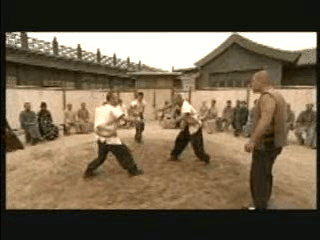I think it depends on how you look at it. Many will tell you that the vertical punch is the cornerstone to Wing Chun mechanics. Remove the fist and replace it with any shape, (palm, taan, fuk, jam, lap, etc...) and you still have all the same concepts, mechanics and structure of the system at work.Punching is such a small part of Wing Chun.
The more Wing Chun is understood and trained as a unified gong fu system, the less need there is to attempt to separate it into prioritized parts. That’s why a lot of folks believe that there is no “advanced” Wing Chun, there’s only the greater ability to implement the skills, concepts and structure of the whole system into a single reaction.Crane style? That's the advanced stuff, and a lot of it is evasion/defense.
I agree that Crane, as it's own style, is very cool though...



